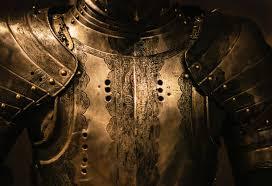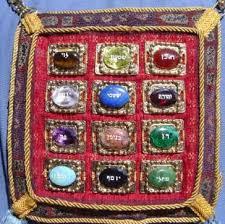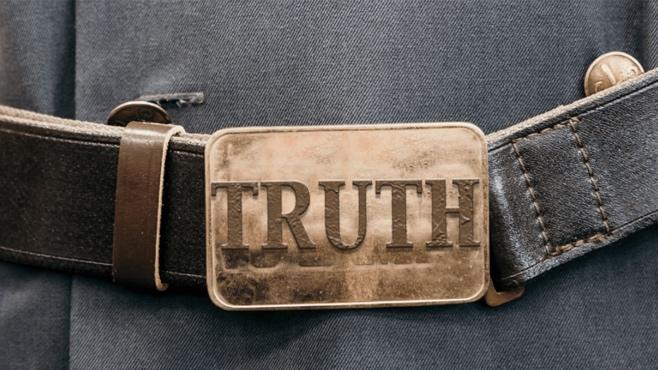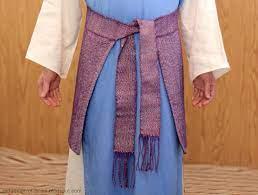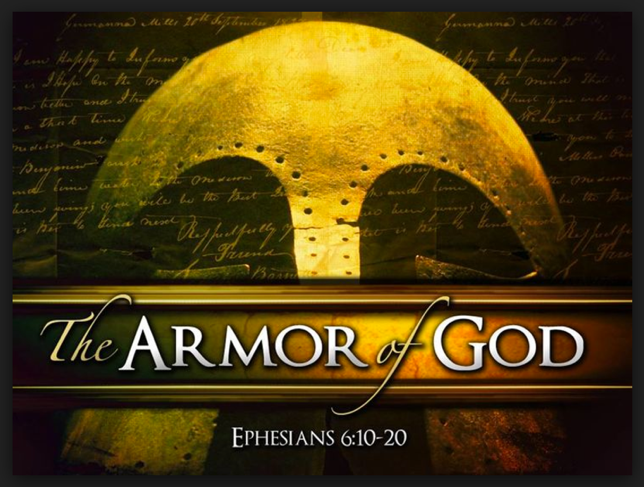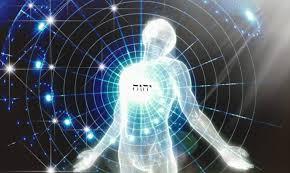Cl – Bibliography
Bibliography

Anderson, Neil, Who I Am in Christ, Regal Publications, Ventura, California, 1973.
Baugh, S. M., Ephesians, Evangelical Exegetical Commentary, Bellingham, WA, 2016.
Ben-Maeir, Moshe, How a Jew Explains Ephesians. Netivyah, Jerusalem, Isra’el, 1978.
Berkowitz, Ariel and D’vorah, First Fruits of Zion, Littleton, Colorado, 1998.
Bruce, F. F., The Epistles to the Colossians, to Philemon, and to the Ephesians, The New International Commentary on the New Testament, Eerdmans, Grand Rapids, MI, 1984.
Coleman, Lyman, Serendipity Bible for Groups, New International Version, Serendipity House, Littleton, Colorado, 1988.
Erickson, Millard, Christian Theology. Grand Rapids, Baker Book House, 1985.
First Fruits of Zion, Torah Club, Mattot, Volume Five, Marshfield, Missouri, 2016.
Fischer, John, The Epistles from a Jewish Perspective, Messianic Jewish Publishers.
Foulkes, Francis, Ephesians, TNTC, Inter-Varsity Press, Downers Grove, Illinois, 1989.
Freeman, James. Manners and Customs of the Bible, Plainfield, Logos International, 1972.
Fruchtenbaum, Arnold, act19.mp3
Gabizon, Jacques Isaac, Ephesians, BethAriel, Montreal, Canada.
Girard, Robert, and Richards, Larry. Acts: The Smart Guide to the Bible Series, Nashville, Thomas Nelson, 2007.
gotquestions.com
Hemer, Colin. The Letters to the Seven Churches of Asia in the Local Setting. Sheffield: Sheffield Academic Press, 1986.
honestuniverse.com
Ironside, Harry, In the Heavenlies, Practical Expository Addresses on the Epistle to the Ephesians, Loizeaux Brothers, Inc, New York, New York, 1937.
Kasdan, Barney, Ephesians, Rabbi Paul Enlightens the Ephesians on Walking with Messiah Yeshua, Jewish Publications, Clarksville, Maryland, 2015.
Ladd, George. A Commentary on the Revelation of John. Grand Rapids: Eerdmans Publishing Company, 1972.
Laney, Carl, Answers to Tough Questions, Wipf & Stock, Eugene, Oregon, 1997.
Lucado, Max, Ephesians, Life Lessons from Ephesians, Thomas Nelson, Nashville, TN, 2018.
MacArthur, John. Acts 1-12 and Acts 13-28.
MacArthur, John. Charismatic Chaos, Zondervan, Grand Rapids, Michigan, 1992.
MacArthur, John, Ephesians, The Moody Bible Institute, Chicago, Illinois, 1986.
MacArthur, John. First Corinthians, Chicago, The Moody Bible Institute, 1984.
MacArthur, John. Revelation 1-11. Chicago, Moody Press, Chicago, 1999.
MacArthur, John, Strange Fire, Nelson Books, Nashville, Tennessee, 2013.
Marshall, I. Howard. Acts. TNTC, 1980.
Meyer, F. B., Devotional Commentary on Ephesians, Good News Pub, Westchester, IL, 1960.
Morris, Henry, The Bible Has the Answer, Baker Books, Grand Rapids, Michigan, 1971.
Morris, Henry. The Revelation Record. Wheaton: Tyndale House Publishers, 1983.
Morris, Leon, First Corinthians, Tyndale New Testament Commentaries, Downers Grove, Inter-Varsity Press, 1985.
Mounce, Robert. The Book of Revelation. Grand Rapids, Eerdmans Publishing Company, 1977.
Polhill, John. Acts. The New American Commentary Series, Holman Reference, 1992.
Ramsay, William. Seven Letters to the Seven Churches. Whitefish: Kessinger Publishing, 2009.
Ramsay, W. M. St. Paul the Traveler and the Roman Citizen. Reprint. Grand Rapids: Baker Book House, 1975.
relevantbibleteaching.com
Shelby, Brett, Ephesians, Explore the Bible Personal Study Guide, LifeWay Christian Resources, Nashville, Tennessee, 1991.
Stern, David, The Jewish New Testament Commentary, Jewish New Testament Publications, Clarksville, Maryland, 1992.
Verbrugge, Verlyn, The Expositor’s Bible Commentary: Volume 11: Romans – Galatians, Grand Rapids, Zondervan, 2008.
Walvoord, John. The Revelation of Jesus Christ. Chicago: Moody Press, 1966.
Walvoord, John and Zuck, Roy, The Bible Knowledge Commentary of the Old Testament. Wheaton: Victor Books, 1985.
Warren, Rick, The Purpose Driven Life, Zondervan, Grand Rapids, Michigan, 2002.
Wiersbe, Warren. Ephesians: Be Rich, Colorado Springs, David C. Cook, 2009.
Wuest, Kenneth, Ephesians and Colossians in the Greek New Testament, Eerdmans Publishing Company, Grand Rapids, Michigan, 1953.











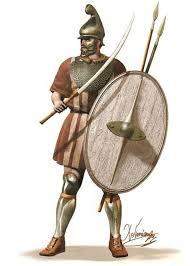
 A military shield was an important part of a soldier’s weaponry. It was a great defense of incoming arrows. The High Priest did not have any such shield. However, it was known that YHVH is the shield of defense for all who walk with Him. But You, ADONAI, are a shield around me; You are my glory, the One who lifts my head high (Psalm 3:3). The six-pointed star was used in the Jewish community as early as the first century AD, but it was not a universal symbol until much later. What is commonly referred to as the “star of David” is in Hebrew called magen David, or, the shield of David. This was an appropriate choice for the flag of the modern State of Isra’el. David treasured the fact that God Himself was his shield. Rabbi Sha’ul reminded the Ephesians that they needed to carry the shield of faith into their spiritual battles. Likewise, our faith in Yeshua guarantees our protection from the flaming arrows of the Evil One.263
A military shield was an important part of a soldier’s weaponry. It was a great defense of incoming arrows. The High Priest did not have any such shield. However, it was known that YHVH is the shield of defense for all who walk with Him. But You, ADONAI, are a shield around me; You are my glory, the One who lifts my head high (Psalm 3:3). The six-pointed star was used in the Jewish community as early as the first century AD, but it was not a universal symbol until much later. What is commonly referred to as the “star of David” is in Hebrew called magen David, or, the shield of David. This was an appropriate choice for the flag of the modern State of Isra’el. David treasured the fact that God Himself was his shield. Rabbi Sha’ul reminded the Ephesians that they needed to carry the shield of faith into their spiritual battles. Likewise, our faith in Yeshua guarantees our protection from the flaming arrows of the Evil One.263

